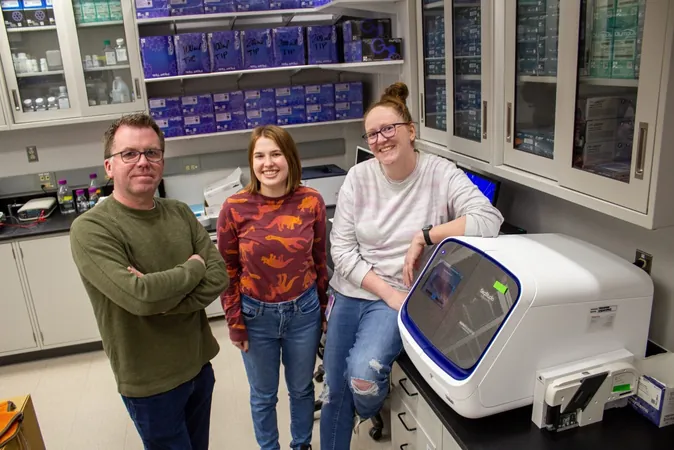
Revolutionary Study Reveals Life's Ancestry Dates Back 4.2 Billion Years!
2025-04-13
Author: Charlotte
The Surprising Origins of All Life on Earth
A pivotal new study has shattered previous timelines, suggesting that the last universal common ancestor (LUCA)—the microbe that gave rise to every living organism on Earth—could have emerged as far back as 4.2 billion years ago. This astonishing revelation pushes back the origin of life’s timeline to just 400 million years after Earth itself took shape.
Decoding Our Ancestral Microbe
LUCA is hypothesized to be a single-celled ancestor from which all life forms—Bacteria, Archaea, and Eukaryotes—are descended. While it wasn't the very first living entity, LUCA symbolizes the earliest known common ancestor, leaving behind a genetic legacy that connects all of today’s organisms.
The research, led by Dr. Edmund Moody from the University of Bristol, deployed a method known as phylogenetic analysis. This technique scrutinizes genetic mutations across various species to trace when life forms diverged, allowing scientists to rewind evolutionary history.
An Unexpectedly Complex Organism
Surprisingly, LUCA wasn’t a rudimentary organism. Emerging in an era devoid of multicellular life or oxygen, LUCA likely displayed biological sophistication comparable to modern prokaryotes. It is believed to have had DNA-based genetics, ribosomes for synthesizing proteins, and ATP metabolism—the basic building blocks of life as we know it today.
Intriguingly, researchers posit that LUCA may have even wielded a primitive immune system, engaging in an evolutionary arms race with viruses. This suggests that LUCA inhabited a vibrant ecosystem rather than a solitary existence, navigating threats that demanded early forms of biological defense.
Thriving Amidst Extremes
LUCA probably thrived in harsh aquatic settings like hydrothermal vents, where intense pressure and mineral-rich waters catalyzed essential chemical reactions for life. These extreme environments are central to several leading theories regarding the origins of life, including the alkaline vent hypothesis.
Despite its ancient origins, LUCA was likely part of an interconnected microbial community, coexisting with early life forms such as methanogens that may have utilized LUCA’s metabolic byproducts for survival. Dr. Tim Lenton from the University of Exeter suggested that this dynamic interaction may have represented one of the earliest forms of ecological recycling.
Redefining Early Evolutionary History
Published in *Nature Ecology & Evolution*, this groundbreaking study draws from a blend of evolutionary biology, genomics, and Earth sciences. It employs a technique called gene-tree/species-tree reconciliation which analyzes the intricate exchange of genes among lineages, offering a richer understanding of LUCA’s biological makeup.
Dr. Tom Williams emphasized the study’s confidence in detailing LUCA’s lifestyle, stating, “This allows us to say with some confidence—and assess that level of confidence—on how LUCA lived.” Professor Davide Pisani added that LUCA was already manipulating its environment, setting the stage for the vast diversity of life that followed, while aligning with recent perspectives on early Earth’s habitability.









 Brasil (PT)
Brasil (PT)
 Canada (EN)
Canada (EN)
 Chile (ES)
Chile (ES)
 Česko (CS)
Česko (CS)
 대한민국 (KO)
대한민국 (KO)
 España (ES)
España (ES)
 France (FR)
France (FR)
 Hong Kong (EN)
Hong Kong (EN)
 Italia (IT)
Italia (IT)
 日本 (JA)
日本 (JA)
 Magyarország (HU)
Magyarország (HU)
 Norge (NO)
Norge (NO)
 Polska (PL)
Polska (PL)
 Schweiz (DE)
Schweiz (DE)
 Singapore (EN)
Singapore (EN)
 Sverige (SV)
Sverige (SV)
 Suomi (FI)
Suomi (FI)
 Türkiye (TR)
Türkiye (TR)
 الإمارات العربية المتحدة (AR)
الإمارات العربية المتحدة (AR)